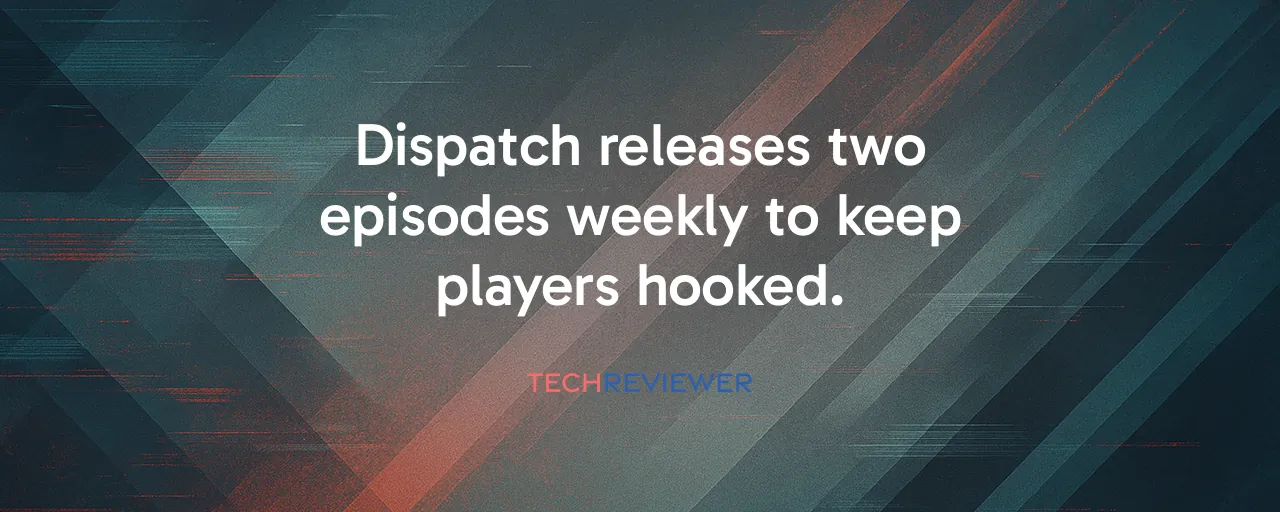A New Spin on Episodic Gaming
When AdHoc Studio launched Dispatch on October 22, 2025, it wasn't just dropping another game. This superhero workplace comedy, starring Aaron Paul as a washed-up hero turned dispatcher, arrived with a plan to fix a broken model. Episodic gaming, once a darling of interactive storytelling, crashed hard with Telltale Games' 2018 bankruptcy. Long gaps between episodes left players bored, budgets ballooned, and trust eroded. Dispatch, built by Telltale veterans, bets on a smarter approach: two episodes released together each week for four weeks, keeping the story tight and players hooked.
The game casts you as Robert Robertson, a former armored hero managing a chaotic team of reformed supervillains at the Superhero Dispatch Network. It's less about punching villains and more about juggling office drama and crisis response in Los Angeles. With Jeffrey Wright's voice adding gravitas and a cast including Laura Bailey and Matthew Mercer, the game leans on star power to pull you in. But it's the release strategy, with eight episodes sprinting to a November 12 finish, that's turning heads.
Learning From Telltale's Collapse
Telltale's downfall is a cautionary tale. In 2018, the studio behind The Walking Dead shuttered abruptly, laying off 250 employees with no severance after investors like AMC Networks pulled out. The problem? Monthly episode releases dragged on, players lost interest, and bloated budgets for licensed titles like Game of Thrones couldn't keep up. By 2017, Telltale's aging engine churned out buggy games with dated visuals, alienating fans. Dispatch sidesteps these traps. AdHoc Studio ditched the old Telltale Tool for modern tech, delivering crisp, hand-drawn animations that earned praise at the 2025 Tribeca Festival.
The weekly paired release schedule is the real game plan. Research shows players ditch episodic games when gaps stretch beyond three weeks, as narrative threads fade. Dispatch's rapid-fire drops keep the story fresh, much like binge-watching a TV series. It's a calculated move to rebuild trust after Telltale left fans with unfinished stories, like The Walking Dead's final season, only salvaged by Skybound Entertainment's intervention.
Life Is Strange: A Blueprint for Success
Not every episodic game flopped. Life is Strange, launched by Dontnod Entertainment in 2015, nailed the formula with a $20 season price and episodes priced at about $5 each. Its relatable characters and tight pacing kept players engaged across five episodes, proving quality and affordability matter. Dispatch borrows this playbook, pricing its eight-episode season at $30 for the standard edition or $40 for a deluxe edition including a digital artbook and four digital comics, while weaving in strategic gameplay. You assign heroes to missions based on stats and personalities, adding depth beyond Telltale's dialogue-heavy formula.
Unlike Telltale's overambition, Life is Strange kept its scope manageable, avoiding the licensing traps that sank Telltale. Dispatch follows suit, crafting an original superhero story free from Marvel or DC constraints. Its workplace comedy angle, paired with light strategy elements like hero cooldowns and a hacking minigame, offers a fresh take that resonates with adults craving mature, relatable narratives.
Gameplay That Balances Story and Strategy
Dispatch isn't just about choosing dialogue options. You're strategizing on a map of Los Angeles, dispatching heroes to emergencies while managing team dynamics. A hero's impulsiveness might botch a mission if you misjudge their fit. Optional quick-time events, which players can disable, show AdHoc's focus on accessibility, a nod to diverse player needs. Early reviews call the gameplay engaging, with Aaron Paul's performance as Robert Robertson stealing the show alongside Jeffrey Wright's nuanced delivery.
The game's emotional core, finding purpose after loss, hits hard. Robert's shift from superhero to desk jockey mirrors real-world career setbacks, making choices feel weighty. Steam reviews from a demo released on May 29, 2025, raved about the story's pull, and critics after the October launch called it a Game of the Year contender. Still, some note the gameplay can feel limited compared to open-ended adventures like Detroit: Become Human.
Can Dispatch Outrun the Risks?
The compressed release schedule is a gamble. Pushing out eight episodes in four weeks demands airtight production, and any slip could tank the momentum AdHoc's banking on. Telltale's crunch culture burned out developers, and AdHoc must avoid that trap to maintain quality. Some players might balk at $30 for six to eight hours of gameplay when AAA titles offer longer campaigns for double the price. And while superhero fatigue plagues films, games like Marvel Rivals show quality storytelling can still win.
The Critical Role partnership, announced on July 21, 2025, is a lifeline. It brings merchandise, comics, an animated series, and co-development of a tabletop game, spreading revenue beyond game sales. But the episodic stigma lingers, with players burned by Telltale's unfinished seasons remaining wary. AdHoc's transparency about its schedule and Steam's refund policies help, but the studio's independence means it lacks the safety net of a big publisher.
A Test for Narrative Gaming's Future
Dispatch is more than a game; it's a litmus test for episodic storytelling. The 2025 gaming scene craves narrative depth, with indie titles racking up thousands of Steam reviews. AdHoc's lean team, led by Telltale alumni like Michael Choung and Pierre Shorette, shows small studios can compete with giants by leveraging talent and partnerships. The game's success could spark a revival of episodic formats, proving they can work with smart pacing and player focus.
If Dispatch falters, it risks cementing the idea that episodic gaming is a relic. But with its sharp writing, stellar cast, and innovative release strategy, it's got a real shot at redefining the genre. Players diving into Robert's chaotic world of hero-wrangling will decide if this experiment pays off, one weekly episode at a time.
